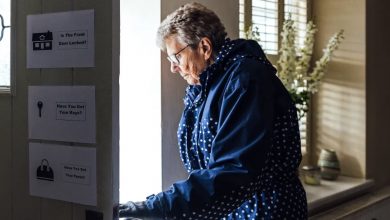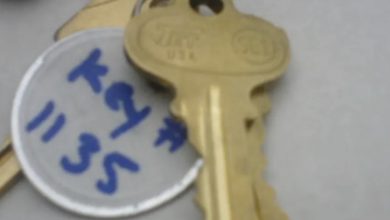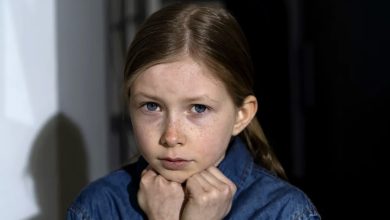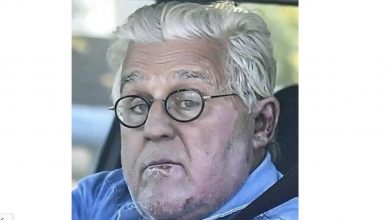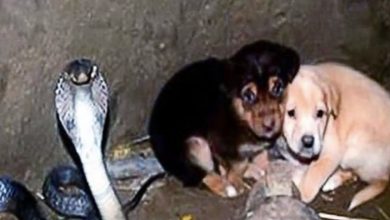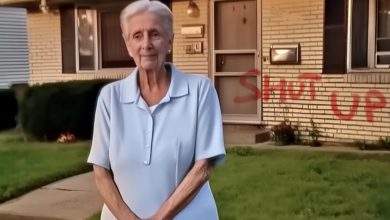How My Family Tried to Break Me and How I Protected My Daughter

My name is Sarah. This is what happened after I brought my newborn home — how my own family nearly ruined my life and how I made them pay for what they did to my daughter and me.
I was twenty-eight and had just given birth to my first child, a little girl I called Emma. The pregnancy had not been easy. I had gestational diabetes, high blood pressure, and then the doctors performed an emergency C-section. I left the hospital sore and tired, still healing from the operation. Marcus, my husband, tried to help as much as he could. He was my rock, but money was tight and he could only take a week off work. I should have let us rest at home, but I thought it would be nice to let my family meet Emma. I was wrong.
My family was never warm. Jennifer, my older sister, had always been the favorite. By the time she was twenty-three she already had three children and no steady job, yet our parents fussed over her. I had gone to college, married a good man, and made a steady life for myself. In my mother’s eyes, that made me the odd one out. She never forgave me for leaving home at twenty-two. That old anger still lived in her voice.
It was a crisp Saturday in late September when I decided to go to their house. I arrived around two in the afternoon, Emma wrapped tight in a pink blanket. My father opened the door, looked at me and at the baby, and then turned away without a word. I should have taken that as a sign and driven off.
Inside their living room there was chaos. My mother, Patricia, sat glued to a reality television show. Jennifer lay on the couch scrolling through her phone while her three children ran and screamed through the house. I stood in the doorway feeling suddenly very small, like a stranger in a place I had called home.
I tried to keep my hope small and simple. “Hi,” I said. “I wanted you to meet Emma.”
My mother did not look at me. “Put that thing down and set it there,” she said flatly. “Your sister’s kids want food. You can cook for them.”
The words landed like a slap. Emma started to cry. I looked at Jennifer, hoping for even a tiny sign of care. She barely looked up. “Did you hear her? Put that down and feed my kids,” she said without emotion.
My face went hot. “Are you kidding me? I had a C-section three weeks ago. I came to show you our daughter, not to be your cook.”
Jennifer shrugged as if I was making a fuss. “My kids are hungry,” she said. “They come first.”
I should have turned and left then. Maybe I would have spared myself the next hour. But I still held on to the silly hope that they would act like family. “No,” I said, taking a breath and holding Emma closer. “I’m not your servant. You can feed them yourselves.”
Jennifer’s face changed. Her eyes went hard. She sprang from the couch and before I could move she snatched Emma from my arms. My baby’s cries turned louder when Jennifer put her down on the dining table like an object.
“What are you doing?” I shouted, lunging forward, but Jennifer blocked me. She leaned into my face, close enough to feel her breath. “Do what I say,” she hissed. “Or I’ll make the baby fall.”
My chest dropped. I looked at my mother, begging her with my eyes to stop this. Patricia kept watching TV like nothing mattered. Emma’s crying grew frantic. Jennifer shoved me aside when I tried to move. Then she grabbed a roll of packing tape and stuck a piece over my newborn’s mouth.
“Keep cooking,” she said, and stepped back.
Hearing my daughter’s muffled cries was like a knife. I felt dizzy and detached. For ten minutes that might have felt like forever, I stood frozen near the stove. I don’t know why I didn’t pull Emma away sooner. Maybe I was shocked. Maybe I hoped someone would step in. No one did.
When I finally turned and walked back to the dining room, Jennifer put herself between me and my daughter. “Where do you think you’re going?” she demanded.
Something in me broke. Years of being the one who had to take the blame, years of being written off by my family exploded into a single, sharp action. I slapped her. The sound of it in the room felt too loud and final. Jennifer stumbled and fell.
I didn’t wait. I ripped the tape off Emma’s face. Her tiny lips were tinged blue. Panic crashed through me. I grabbed the baby and ran to my car. I drove as fast as I dared, breaking the speed limit, praying the whole time that she would be all right.
At the emergency room a nurse took one look at Emma and pulled us into a treatment area. A doctor, Rebecca Chen, came to see us. She guided me into a quiet room and asked me to tell her exactly what had happened. I told her, and I could barely hold myself together. I remember the way her face softened but also hardened with professional anger.
“She suffered oxygen deprivation,” Dr. Chen said after listening. “Tape over a newborn’s mouth can stop them from getting enough air. We’ll run tests. Newborns are very fragile. There could be short-term or long-term effects.”
My world tilted. The idea of lasting damage terrified me more than any court or revenge plan ever could. Dr. Chen said they had to report it. “This is child abuse,” she said plainly. The police would be called. They wanted to keep Emma for observation for at least seventy-two hours.
Those three days in the hospital were the worst I have ever known. Marcus arrived and his face looked like someone had taken all the color out of him. The police interviewed me. Detective James Morrison was assigned to our case; he was serious and steady, and that steadiness helped me hold on. They photographed the marks on Emma’s face and took my statement. I could not stop shaking.
On the third day Dr. Chen told me the first round of results. “We’re not seeing clear evidence of permanent brain damage right now,” she said. “But Emma had a significant stress event. We’ll need to watch her closely as she grows. Sometimes issues don’t show up immediately. Respiratory problems or developmental delays could appear later.”
I left the hospital with Emma small against my chest and rage blazing under my sorrow. Jennifer was arrested a few days after Emma came home. My mother was also charged for failing to act. The law could punish them, but punishment was not the whole of what I wanted. I wanted them to understand what they had done, to face the consequences of their cruelty.
When my mother called me from the police station, she screamed at me that I had ruined their lives. “We are family,” she said. “How could you do this to us?”
“You stopped being my family the moment you treated my daughter like trash,” I told her.
“It was a mistake,” she said, the old manipulative tone I knew so well. “Jennifer didn’t mean anything by it.”
“My daughter could have died,” I said. Her response proved she felt no real guilt. “She’s fine now, isn’t she? Why make such a big deal?” she asked.
That was the moment I decided I could not simply let the legal system do the work alone. I sought out therapy. Dr. Montgomery, a therapist who worked with trauma victims, helped me find my center again. “This isn’t revenge,” she told me gently. “Holding people accountable for harming a child is responsibility. You are protecting others.”
Her words gave me focus. I started small. I reached out to Connor Davis, the father of Jennifer’s children. He had fought for custody for years and had been blocked by lies and legal maneuvering from my parents. I told him everything I had seen over the years and everything that had happened with Emma. I testified when he finally went to court. The judge awarded Connor full custody. For the first time, those children had a stable home.
Then I hired a forensic accountant to go through my parents’ finances. My grandmother had left a trust of two hundred thousand dollars for Jennifer and me to split when we turned thirty, with my parents managing it until then. The accountant found nearly a hundred and fifty thousand dollars missing. My parents had treated the trust as their own money, buying cars for Jennifer, paying for vacations and parties, even fabricating withdrawals supposedly for my college fees — money I had paid myself.
I sued them. The evidence was clear. The court ordered them to repay the sum, plus interest and legal fees. They couldn’t. The judge ordered the sale of their house to cover the debt. I remember standing across the street the day the “For Sale” sign went up, feeling an odd mix of sorrow and relief.
Jennifer’s criminal trial came eight months after the hospital visit. I sat through every day of it. The jury found her guilty of the charges. She was sentenced to four years. My mother was found guilty as an accessory and received a shorter sentence. The town that had always praised them turned against them. Friends stopped answering calls. They had to leave and try to build a life where no one knew what they had done.
I admit it: my actions were calculated. I didn’t want a dramatic showdown. I wanted the truth to be known and for consequences to follow. I wanted my daughter to grow up safe and to know I had done everything I could.
On Emma’s first birthday I sent them a card with a photo of her smiling in sunlight. On the card I wrote, “Emma is thriving. No thanks to you.” I sent similar notes at every holiday and milestone, not cruelly, but as a clear message: they had lost something important by their choices.
Marcus sometimes asks if I regret what I did, if forgiveness would be better. He doesn’t push. He held me in the hospital and watched me shake when the doctors said “watchful waiting.” He knows what it felt like to fear for our child’s future.
They had the choice to welcome Emma with love that day. They chose cruelty. I chose to protect my child. I have no regrets. My duty is to Emma, to keep her safe even from the people who share our blood. I would do it again, and I would do more if I had to.

